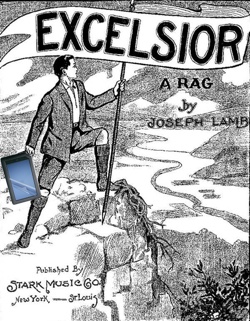 Both Amazon and Barnes & Noble have downplayed actual e-reader device sales numbers, instead crowing about the number of ebooks sold in the past year. This is an important distinction because it shows few things about the Nook/Kindle audience. First, e-readers (dedicated e-readers, mind you, not tablets) are popular with heavy readers and, as a corollary, most e-reader owners buy a lot of books. However, the real value has been in the e-book format itself, as the popularity of the Kindle and Nook e-book stores can attest. Since the first e-readers trickled out of Sony in about 2006, the general audience has complained about the lack of a color option and their interest has been consistently drawn to tablets like the iPad, the Playbook, and the HP Slate. What’s an e-reader manufacturer to do?
Both Amazon and Barnes & Noble have downplayed actual e-reader device sales numbers, instead crowing about the number of ebooks sold in the past year. This is an important distinction because it shows few things about the Nook/Kindle audience. First, e-readers (dedicated e-readers, mind you, not tablets) are popular with heavy readers and, as a corollary, most e-reader owners buy a lot of books. However, the real value has been in the e-book format itself, as the popularity of the Kindle and Nook e-book stores can attest. Since the first e-readers trickled out of Sony in about 2006, the general audience has complained about the lack of a color option and their interest has been consistently drawn to tablets like the iPad, the Playbook, and the HP Slate. What’s an e-reader manufacturer to do?
In short, they need to create a slate with a focus on e-reading which, like the Nook, will run a kiosk-style, locked-down version of Android. A thin LCD screen (OLED is right out) should satisfy all but the most picky reader and a $250 price tag, $50 more than the best E Ink Nook, would create a fairly compelling offering for that self-same reader.
And that’s just what we can expect to see from Barnes & Noble this week when they announce a new Nook.
As Devin wrote last June, e-readers are in a race to the bottom. Expect a $50 black and white model – probably compatible, in theory, with a major bookseller’s bookstore – to appear at Target or Wal-Mart this year. With that in mind, B&N also has to beat the most popular e-reader kit, the Kindle. Therefore, B&N needs an October surprise to grab some market share before the wave of Android and Win7 tablets crashes over the tablet market next year.
That said, I’m kind of excited. A Nook tablet will, once and for all, give the average reader a reason to buy an e-reader and a tablet in one fell swoop. This, in turn, will force folks like HP and Blackberry to create more compelling devices and, in turn, this competition will force tablet makers to stop trying to sell garbage. It will also mean that the crop of holiday and 2011 tablets will be far superior to the current models we’ve seen thus far.
Tablets are not useful unless you offer a use case. The trouble with the HP Slate is not in that its powered by Windows 7. The trouble is that HP has chosen to aim the device directly at claim adjusters and hotel bell desk attendants. It’s this failure of imagination that will doom the Slate with a general audience on launch. However, if they said it was a media player with great ebook functions and runs Microsoft Word and Excel – all things it does and can do well – they could sell a million of them. To be clear, HP hasn’t dissuaded us from thinking a consumer version is in the works but from a general sales perspective, promising improved productivity is a bad sales pitch. The general (“It runs everything! It’s Windows 7!”) is always trumped by the specific (“It plays videos and games on a big color screen and you can read Kindle e-books.”).
I also think a color Nook will finally force fence-sitters to buy an e-reader and, in the end, destroy the physical book as we know it. Again, this drastic change in publishing is a long way off – perhaps six months – but the inexorable signature of progress is writ large on the face of this new Nook.
Thoughts?